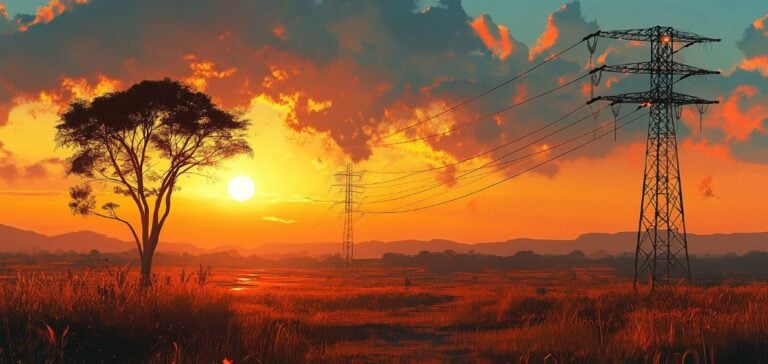Sub-Saharan Africa faces a major challenge in terms of access to energy. It is estimated that approximately 570 million people in this region still lack electricity. This is partly due to outdated infrastructure, insufficient investments, and inadequate energy policies. In the face of these challenges, the Zambia-Tanzania Interconnector (ZTIP) project emerges as a strategic response to improve the region’s energy integration.
The ZTIP project, valued at $292 million, aims to strengthen the electrical transmission capacities between Zambia and Tanzania. This initiative is supported by financing from several international players, including the World Bank, the International Development Association (IDA), the UK’s Foreign, Commonwealth & Development Office (FCDO), and the European Union (EU). These investments are crucial for improving electrical infrastructure in both countries and facilitating regional energy exchanges.
A Key Project for Regional Energy Integration
The ZTIP marks an important step in energy cooperation between Zambia and Tanzania. One of the main features of this project is the establishment of 330-kilovolt transmission lines, which will particularly strengthen the Zambian electricity grid. This development is expected to enhance Zambia’s capacity to accommodate new renewable energy projects while reducing its dependence on hydropower, which is particularly vulnerable to climate variations.
Regional energy integration, supported by the ZTIP, will allow Zambia and Tanzania to join larger energy pools such as the Southern African Power Pool (SAPP) and the Eastern Africa Power Pool (EAPP), thus forming the largest geographical energy market in the world. This network will cover a vast area extending from Cape Town to Cairo, facilitating electricity exchanges between countries in the region.
Expected Economic and Environmental Impacts
Strengthening regional energy integration through projects like ZTIP could have several positive effects on the region’s economy. Firstly, access to more reliable and diversified energy could stimulate economic growth, reduce energy costs, and promote the establishment of new industries. Furthermore, the development of transmission infrastructure is also a lever to attract more investment into the energy sector.
The ZTIP project is also part of a dynamic of energy source diversification, which is essential for ensuring the region’s energy stability. In addition to hydropower, the region has numerous natural resources, such as solar, wind, and geothermal energy, which, once fully harnessed, could enhance energy security while reducing dependence on fossil fuels.
A Model for Other Energy Integration Projects in Africa
The ZTIP represents a potential model for other regional initiatives across Africa. Since 1995, the region has set up several energy pools to facilitate electricity exchanges between countries, such as those in East and Southern Africa. With projects like ZTIP, these initiatives can be strengthened, contributing to the goal of a better-connected and more energetically integrated Africa.
The outcomes of this project could serve as a reference for other similar projects, providing concrete solutions to improve electricity access, encourage investment in infrastructure, and reduce energy costs.






















